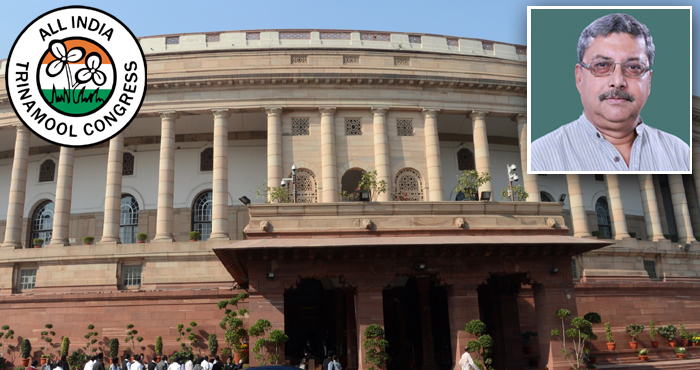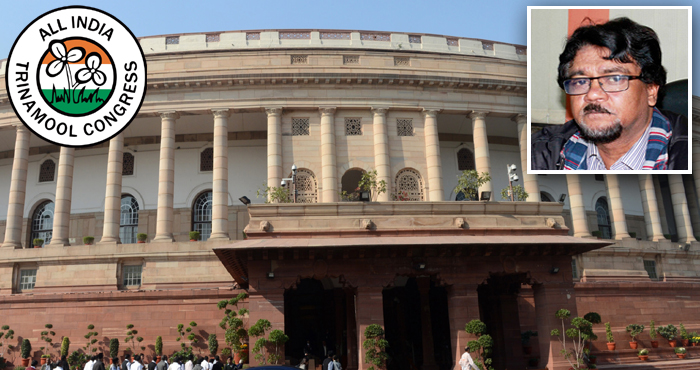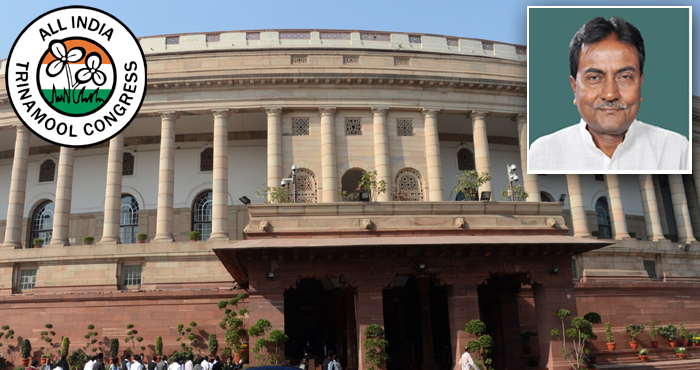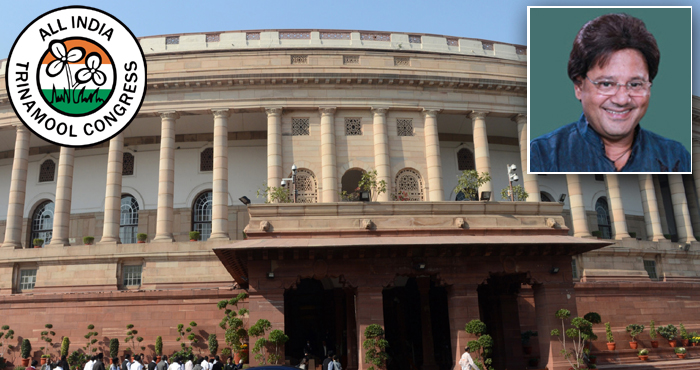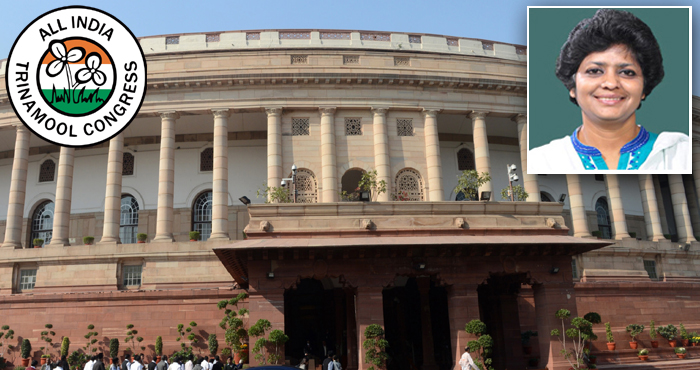Thank you Hon’ble Deputy Speaker, Sir. At the very outset let me make our party’s position very clear that we are supporting the Constitution (One Hundred and Twenty-Second Amendment) Bill, 2014, which along with the amendments, has been brought to our House. After the Constitution Amendment Bill was passed in the Rajya Sabha few days back our Hon’ble Chief Minister Mamata Banerjee welcomed the Constitution Amendment Bill. Our party is supporting this Constitution Amendment and GST for the last one decade for the benefit of micro, small and medium enterprises.
These small and medium enterprises are the backbone of the economy in terms of providing employment in our country. Therefore, a single tax imposition through GST will help heavily and our party supports that stand. Our leader who is the most popular leader of Bengal – last election has proved that – The Chief Minister of West Bengal, Mamata Banerjee extended hands of co-operation for bringing the present Constitution Amendment Bill.
Let me remind this august House that on 5 May, 2015 in support of this Constitution Bill, I took part in the debate on behalf of my party and supported the Bill but made few suggestions and requests. Sir, the proposed Constitution Amendment and GST would subsume various central taxes – like excise duty, additional excise duty, service tax, countervailing or additional customs duty, special additional duty of customs etc. – as well as state level indirect taxes – VAT, sales tax, purchase tax, entertainment tax, luxury tax, octroi, entry tax etc.
Once the Bill is passed there will be a national-level central GST, state-level GST and I-GST spanning the entire value chain for all goods and services with some exceptions. Mechanism for resolving may be decided by the GST Council itself. No doubt, that it is one of the biggest tax forms creating national market for goods and services.
The GST had been stall for long years because of debate between the two national political parties – the Congress and the Bharatiya Janata Party. And country has suffered for that. Economic reforms are a continuous process and seamless. The Indian economy felt that it has come of age to try out a unified taxation system such as VAT or GST.
Although we are supporting the Bill. We are having few points which need clarification from the Hon’ble Finance Minister.
Number one. In a meeting of the Empowered Committee of State Finance Minister, all States unanimously voiced their concern about the problem of dual control under GST by Central and State tax authorities on taxpayers, in respect of micro, small and medium enterprises, and the resultant effect of the hardship on the small taxpayers. A discussion took place in the Empowered Committee on 14 June, 2016 in Calcutta in the presence of Hon’ble Union Finance Minister.
The States unanimously voiced that dual control on these classes of taxpayers will increase their cost of compliance and put them under great hardship. It was pointed out by all the States in the presence of the Honourable Finance Minister, ‘as these taxpayers constitute almost 70 per cent of the tax base but have minimum revenue potential, the dual control will make it difficult for the Centre and States to roll out GST.’
Let me give one example. Let us consider the case of a lady who is running a beauty parlour, which is a small enterprise. That beauty parlour will come within the context of dual control. Therefore, I am making a request to the Finance Minister to exclude micro, small and medium enterprises from the purview of dual control when the GST Bill will be brought to Parliament in the future.
My second point. In the case of I-GST, it is expected that State revenue should not be adversely affected.
My third point. The issue of GST compensation was discussed in the last two meetings of the Empowered Committee that were held on June 14 and July 26, 2016. The States had unanimously agreed that the compensation should be paid in full for a period of five years. This sentiment of the State was shared with the Honourable Union Finance Minister, who was appreciative of the concerns of the States; I must say that. He assured the committee that the Centre is committed to give full compensation for a period of five years.
The proposed amendment which was brought today in Lok Sabha has incorporated the suggestion of the Empowered Committee, but there is no mention of payment of full compensation. But the Honourable Finance Minister, on the floor of Rajya Sabha, committed to the full amount of compensation. Sir, I need a clarification through you from the Honourable Finance Minister that what do you mean by full amount of compensation. Kindly clarify that part. That is a very important aspect for which we need an answer from you.
My next issue, number four, is the tax rate under GST. It is often called revenue neutral rate and is something to which the Empowered Committee has applied two principles. The first is that the GST tax should not be so high that it would adversely affect the common people through inflationary pressure. The second principle of the Empowered Committee is that the tax rate should be such that the revenue of the States also does not suffer.
Sir, let us hope and pray that the GST gets implemented soon and in a swift manner. Let the Centre get its share of GST and the states, their share of SGST. An inter-state GST mechanism should be made to balance the equation between the two and end the tax competition leading to constant inflation in the country. Let GST bring down prices and push up prosperity and living standards of the people of India.
Sir, I have a request to the Hon’ble Prime Minister today. For every work done in the country, the Prime Minister himself claims the credit. While claiming such credit, the Prime Minister forgets that States are the political executives who work hard for the implementation of the legislative and administrative schemes so that Centre sees the face of success. At least today the Hon’ble Prime Minister, in the august House, must say that the because of the Chief ministers and Finance Ministers of all the states of all the parties, this Bill has been brought and it is Bengal’s Finance Minister, as the Chairman of the Empowered Committee, is the successful claimant of bringing the Bill and getting it passed in the House.
see to our today and understand that what the states are cooperating with you. Because the states are cooperating with you; this is the reason that this Bill will be passed today. Therefore, I request the Hon’ble Prime Minister, please extend your hand of cooperation to the States on a need basis.
Hon’ble Finance Minister, we have extended all our cooperation, now we will watch your actions; how much cooperation will you extend to West Bengal to resolve the problem we have repeatedly brought to your notice. The way the Hon’ble Chief Minister of West Bengal has extended cooperation, the way the Hon’ble Finance Minister Amit Mitra has extended cooperation, I will request to you today, Sir, to give a special package to the state of West Bengal.
Thank you.

